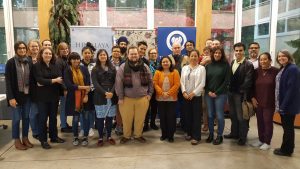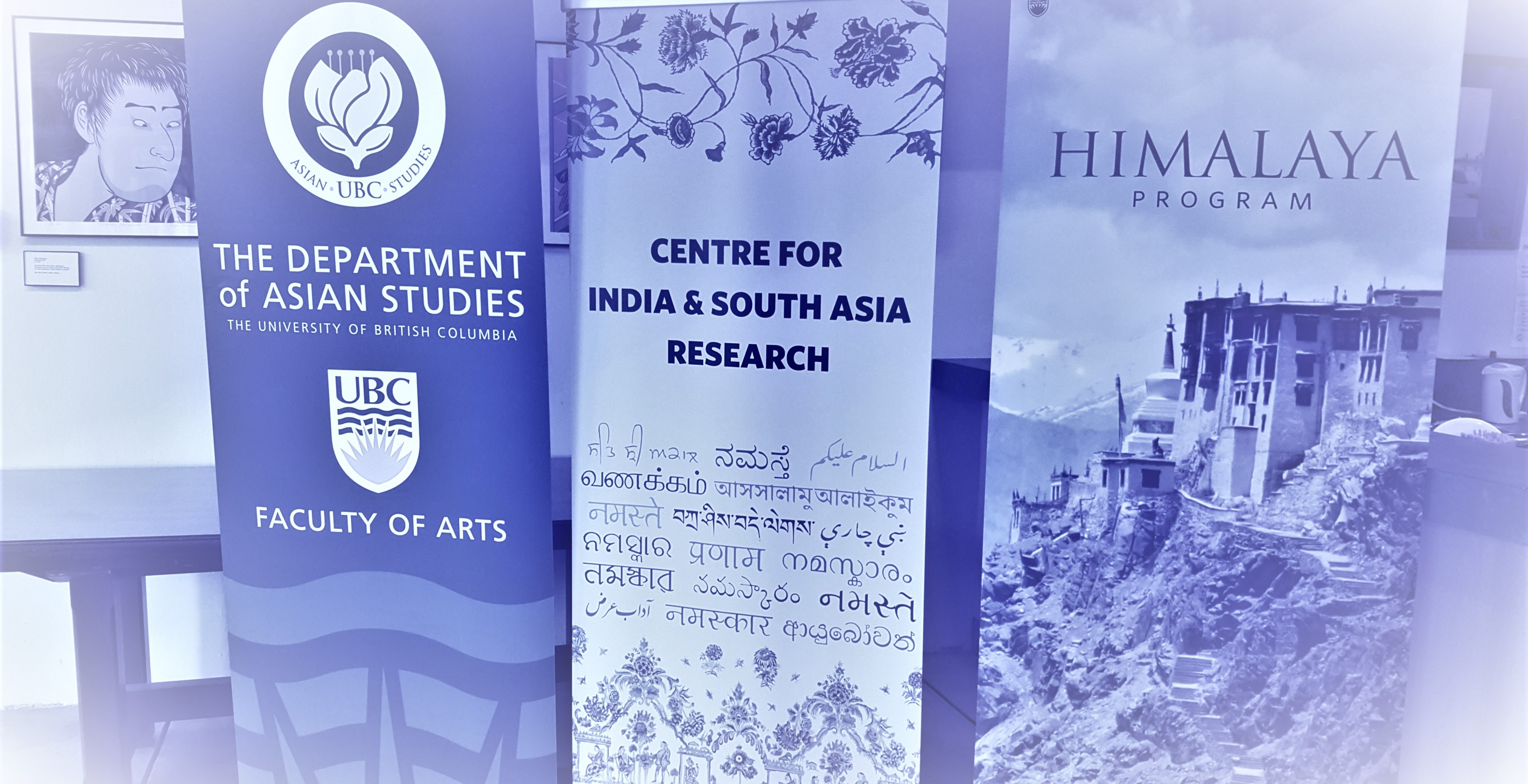SACPAN
The annual South Asia Conference of the Pacific Northwest (SACPAN) is a collaboration among several universities. Hosting of the conference rotates each year among universities across the region in the US and Canada.
Student Mobility
CISAR has been working closely with our counterpart at the University of Washington (UW), the South Asia Center, to share opportunities for student research, exchange and language study — across our two universities and in South Asia! For more information and links to study, research and funding resources, explore our student mobility info document by downloading it at this link: UBC-UW Student Mobility
Connecting South Asian and Himalayan Research Communities Across Cascadia
In 2018-2019, CISAR received a grant from the Office of UBC’s Vice President for Research & Innovation to build collaboration with students and faculty at UBC and UW on South Asian and Himalayan research. As a part of this project, an intensive 2-day workshop involving 33 faculty and graduate students from UBC and UW was held at UBC on November 2-3, 3018 (see program). This workshop provided opportunities for conversation, planning and exchange on multiple scales: from full-group plenaries to working-group level discussions to small breakout sessions and shared meals. The two thematic working groups were titled Health, Infrastructure and Social Transformation (HIST) and Early Modern Literary Cultures (EMLC) in the proposal. During the workshop, the HIST working group was structured organically into non-mutually-exclusive sub-groups focused on: 1) disaster, heritage and conflict; 2) health; and 3) diaspora communities across Cascadia. During the workshop, the EMLC group renamed itself Literary Cultures and Circulation (LLC). Each of these focus areas represent strong areas of research at UBC and/or UW, where collaboration and exchange can be deployed to maximum effect.
The work of the EMLC/LLC group focused broadly on literary, linguistic, and historical analysis of South Asian texts. The group worked in various modes, in accordance with the needs of researchers. In some cases, papers were pre-circulated, allowing colleagues to provide detailed feedback on each other’s ongoing work. In other cases, group members shared their ideas and preliminary plans for new research projects, to get formative feedback. The group also held a screening and discussion of the documentary film A Tongue Untied: The Story of Dakhani, by the Mumbai-based writer and filmmaker Gautam Pemmaraju. Completed in 2017, this film explores the history and legacy of an early vernacular form of Urdu spoken across the Deccan region of central and south India, shedding light on a vibrant early modern language that is of vital importance for a broader understanding of vernacular literary traditions in the region. Active participation by graduate students as well as faculty at both institutions enriched the conversation, and led to concrete plans for follow-up meetings and collaborative work.
Over the course of the workshop, the HIST group broke into smaller, thematic working groups to discuss common research interests. A sub-group focused on health discussed shared interests surrounding, maternal and child health, mental health, digital systems/technology in global health (e.g., EMRs, mobile health apps, drones), implementation science, cross-cultural adaptation (e.g., adapting diagnostics, tools in context), conflict, gender-based violence, and global health programs (e.g., student electives, service learning, medical missions w/ NGOs). A sub-group looking at migration and land use discussed patterns of migration between South Asia and the Pacific Northwest, along with the dynamics of migration, ruralization and urbanization in South Asia itself. A third sub-group discussed topics surrounding indigeneity and research ethics, including the ways in which positionality and ethics shape research, and how notions of indigeneity differ within the South Asian context and/or inform work in South Asia. Finally, a sub-group focused on disaster, conflict and heritage considered different ways that our thinking on disasters might be complicated by seeing them as repetitive and cyclical, and by looking at the influence of colonial disaster reporting on modern disaster response, as well as thinking about the ripple effects of disasters on heritage and the built environment.
As a result of productive engagement throughout the workshop, participants from both universities discovered synergies among their varied research goals, which they are keen to explore through future collaboration. During the workshop’s final session, participants explored the ways that UBC and UW can support each other with resources for learning South Asian languages, study and research abroad, and student exchange between the two universities.

